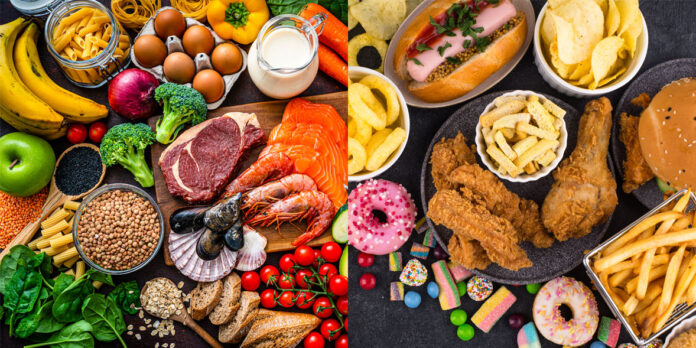Ultra-processed foods, which include items like sodas, processed meats, and breakfast cereals, have become a staple in many diets worldwide. However, a recent surge in obesity rates and growing health concerns have led to increased scrutiny of these foods.
A new study highlights that nearly three-quarters of American adults are now obese or overweight, with ultra-processed foods being a potential culprit. This raises important questions about how concerned we should be about these ubiquitous foods and their impact on our health.
Quick Summary
-
Ultra-processed foods are linked to health issues like obesity and heart disease, prompting concerns about their widespread consumption.
-
These foods are energy-dense but nutrient-poor, contributing significantly to daily calorie intake in many countries.
-
“Following a diet high in ultra-processed foods has been linked to conditions like heart disease, Type 2 diabetes, and cancer,” notes Alice Callahan, a nutrition and health reporter.

Background
Ultra-processed foods are characterized by their extensive processing and addition of preservatives, artificial flavors, and colors. They are designed to be convenient, durable, and highly palatable but often lack essential nutrients. Examples include carbonated drinks, processed meats, confectionery, and packaged snacks.
Impact
Consumption of ultra-processed foods has been associated with various health issues, including obesity, heart disease, and Type 2 diabetes. A significant portion of daily calories in many countries comes from these foods, with the U.S. and U.K. being among the highest consumers. The nutritional quality of diets heavy in ultra-processed foods is generally poor, contributing to these health concerns.
Expert Opinions
Josiemer Mattei, an associate professor of nutrition at Harvard, notes that while the ultra-processed food category is diverse, some products are likely more harmful than others. Recent studies have aimed to identify the worst offenders within this category.
-
“The ultraprocessed food category is a hodgepodge of foods,” said Josiemer Mattei, highlighting the complexity of assessing their health impact.
-
Ultra-processed foods account for nearly 58% of calories consumed in the U.S. and 57% in the U.K.

FAQs
-
Q: What are ultra-processed foods?
A: These are foods heavily processed with added preservatives and artificial ingredients, often lacking essential nutrients. -
Q: Why are ultra-processed foods concerning?
A: They are linked to health issues like obesity and heart disease due to their high calorie and low nutrient content.
Conclusion
As concerns about ultra-processed foods grow, it’s essential to consider their impact on our diets and health. While some ultra-processed foods may seem healthier than others, reducing overall consumption can improve dietary quality.

